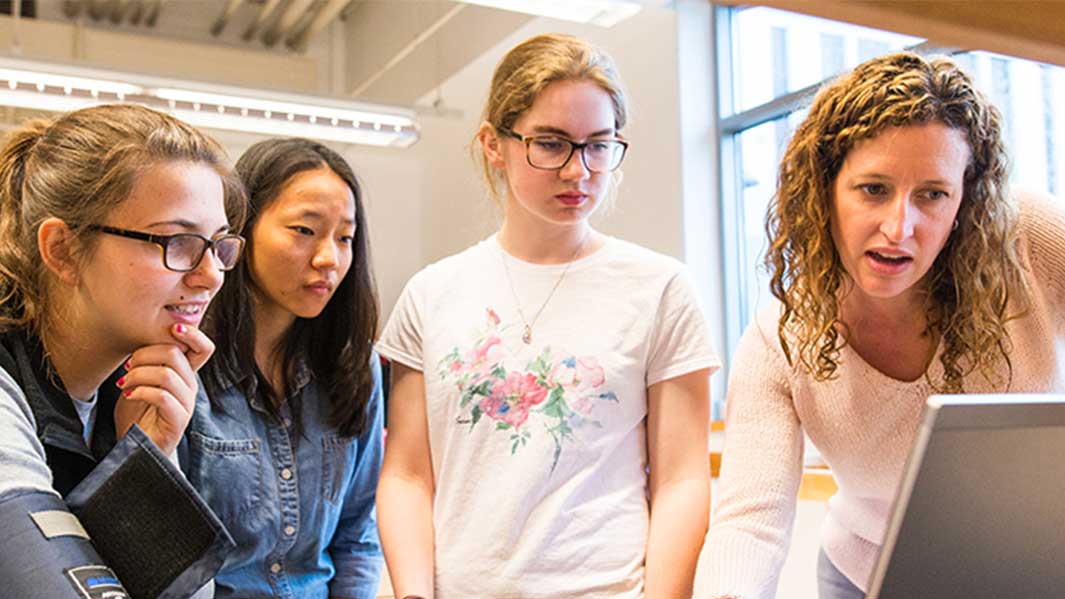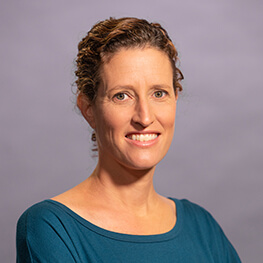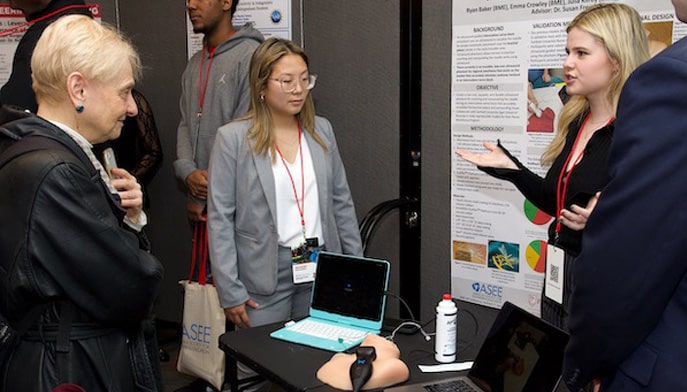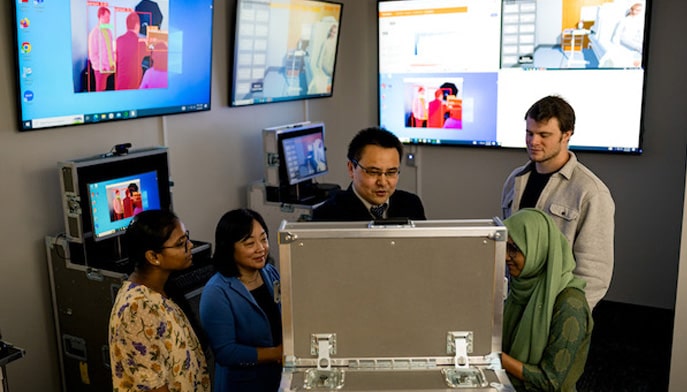Biomedical Engineering
Format & Location
On-Campus (Fairfield, CT)
School/College
School of Engineering and Computing
Start Dates
Spring (January), Summer (May), Fall (September)
Application Deadline
Rolling Admission
Completion
12-24 months
Schedule
Full-Time or Part-Time
Biomedical engineers apply diverse skills to create solutions to continuing worldwide health issues, accelerate efficiency, and expand options as to how patients are treated.
Find Out More
Course Requirements
30 credits
Contact Us
Graduate Admission
gradadmis@fairfield.edu
(203) 254-4184
Career Outlook
Through Fairfield's MS in Biomedical Engineering program, you'll develop skills that can be directly applied to your current or future career.
Employment Opportunities
Examples of employment opportunities for master's degree holders in biomedical engineering include:
- Biomaterials Developer
- Biomedical Scientist/Researcher
- Medical Technology Developer
I enjoyed the professors and how helpful they are. Additionally, the 4+1 program allowed me to begin work sooner than if I had gone elsewhere. The school itself is very open to any issues you may have.
- Brianna Duswalt, '23



